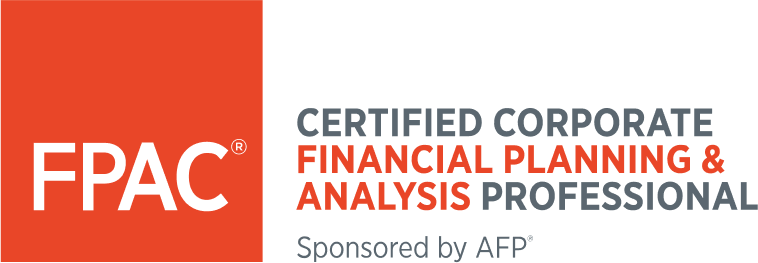FPAC Profile: Having Great Mentors Helped Me to Become One

“My first job in finance was with a startup, which allowed me to wear many hats. It was a great way to grow my skills quickly,” said Mario Vasquez, Senior Director of Finance, The E.W. Scripps Company.
After three years of growing his skills, and getting his MBA, Mario walked through the doors of Airtrain Airways corporate headquarters and into his first job in FP&A.
It’s the strategic nature of FP&A that Mario finds most compelling. “I use financial data to guide decisions, and I get to be part of the decision making,” he said. Being in FP&A also means he has the opportunity to work closely with other departments, providing him with a holistic view of the business. “It helps when making strategic decisions, or when helping to build strategies or set goals for the finance team,” said Mario.
Major influencers in his life
The first big influencer of Mario’s life was his dad. “He had an incredible work ethic,” said Mario. Others who influenced his career include professors, managers and other leaders he met along the way. “I’ve been fortunate to have had such great mentors in my life,” he said.
In addition to the people, Mario credits his education — finance degree and MBA — with “making me who I am today and helping me get to the position I am in.” He said he also places a great deal of value on the continuing education, resources and networking he has received as part of AFP. “Especially in the last couple of years since I was invited to be part of the North American FP&A Advisory Council,” he said. “I learn just as much, if not more, than I contribute being a part of this group of FP&A professionals.”
Core aspects of his job
In his current position as Senior Director of Finance for The E.W. Scripps Company, an American broadcasting company based in Cincinnati, Mario said the two core aspects of his job are strategic analysis and partnering with business leaders.
The knowledge and skills Mario recommends for successfully performing the analysis portion of the job are “more technical in nature and what you probably think of as the skills FP&A needs, e.g., Excel, data analysis, forecasting, modeling.” And when it comes to partnering with business leaders, the skills needed are soft. “Communication is huge here, as well as knowing how to work with lots of different personalities — especially type-As,” said Mario.
Being able to pay it forward is the thing Mario is most proud of in his career — helping others to learn, grow and advance. He tries to be the best mentor, teacher and role model for his people, and when they come back to thank him, he experiences the warmth of knowing he helped someone else.
“It's the best feeling when they thank me for being a great mentor,” he said. “I had one analyst leave because he was moving for his wife's job. He too landed a great job in his new city, and went out of his way to thank me for everything I did for him. He said he got the job because of what I taught him. That made me feel great!”
Macroeconomics are front of mind
Macroeconomic conditions are top of mind for Mario and his team. His approach to this challenge is to be as flexible and proactive as possible. “My team and I are always creating different versions and what-if scenarios so we can talk as a group about our options,” he said. “We can't control the macroeconomic environment, but we can help our company to be as agile as possible and ready for anything that comes our way.”
Looking to the future
“The future of FP&A is going to be AI and machine learning,” said Mario. In order to ensure he stays up to date with that progression, Mario plans to grow his skills in those areas. He wants to learn how to use these technologies to the advantage of the company.
“I know some people are scared that it will take our jobs,” he said. “It will only take our jobs if we don't embrace it and learn how to use it.” The human element will still be needed, Mario’s take is that these tools will make finance professionals more productive so more time can be spent on analysis and strategy — and less on pulling data together and creating the analysis.
Regarding his own advancement, “I have always wanted to become a CFO,” he said. His ideal scenario would be to become CFO for a small to mid-sized privately held company and take them public.
One of the pioneers of the FPAC
Mario was part of the beta test group for the FPAC exam in 2014. He was researching professional certifications, but couldn’t find anything that focused on FP&A. “That’s when an old boss of mine reached out to let me know about AFP and the FPAC they were working on.” He was invited to be part of the roundtable best-practice discussions, and when the study materials came out, he bought them. “I read through the books and focused on terminology,” he said.
After he received confirmation that he’d passed the exam, he let the executive team where he worked at the time (ION Media Networks) know he had received the FPAC certification. They were impressed with his initiative, and his achievement, and started giving him more work as a result, particularly as it related to special projects. “I started getting some nice bonus payouts shortly thereafter,” said Mario.
About a year and a half after becoming certified, Mario was promoted from Director of Finance to Vice President of Finance and Operations. “It [the FPAC] has been very good for my career, but it has also been very good for networking,” he said. “I love going to the annual AFP conference, and have attended every one since 2014.”
“I recommend the FPAC to others all the time,” said Mario. As it is the premier certification for corporate FP&A, Mario said he knows that anyone who holds the FPAC designation “has the skills I’m looking for when I have an open position on my team.” Having the FPAC designation shows you know what you’re doing, plus “it’s a great way to keep up with current trends.”
“I tell people all the time to continue learning and never stop,” said Mario. “Getting the FPAC is a great way to do that.”

